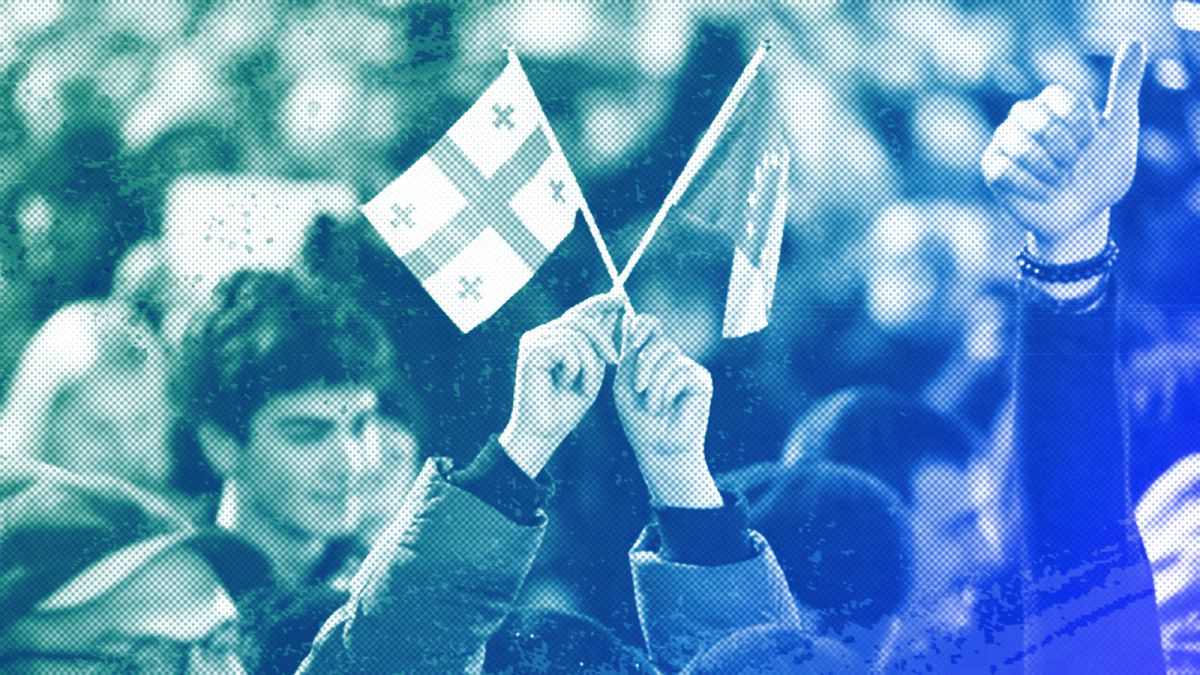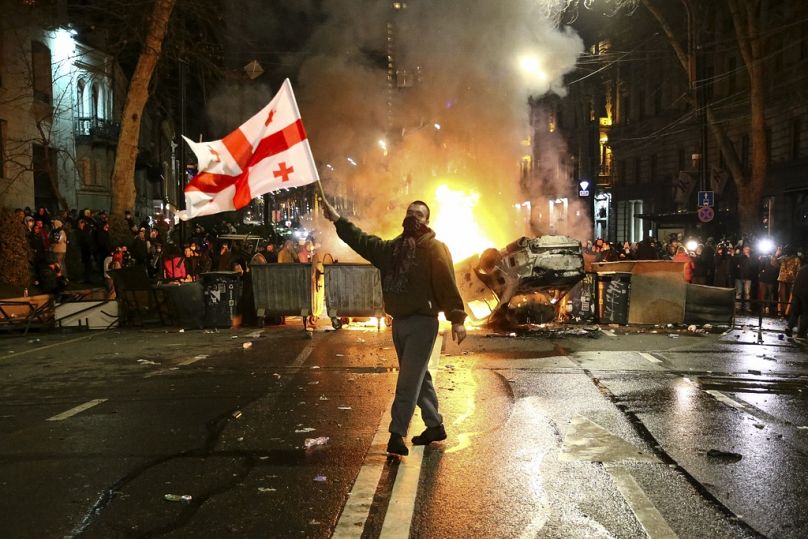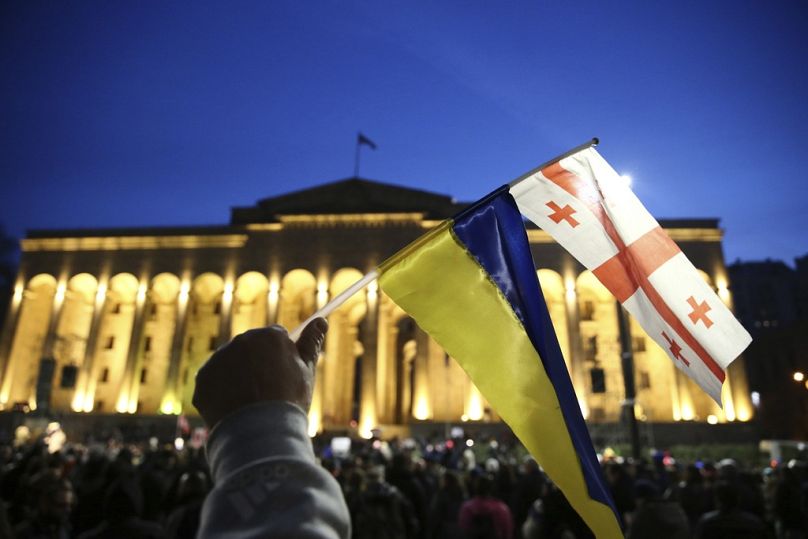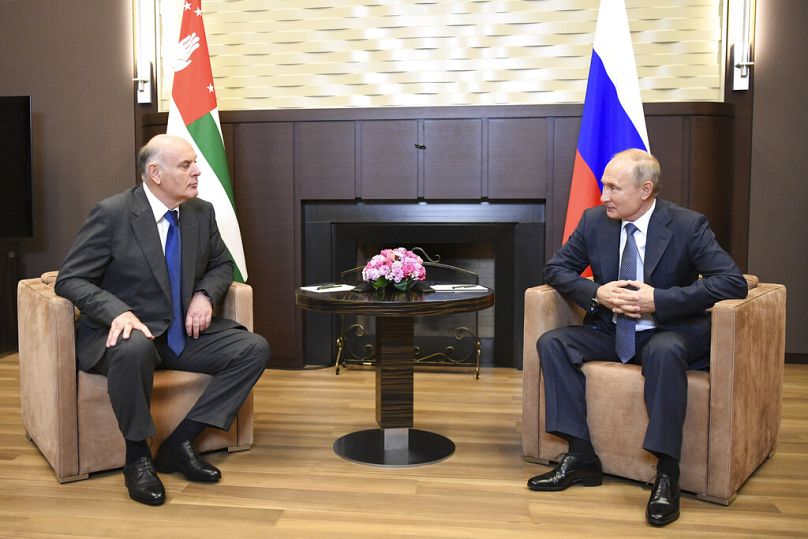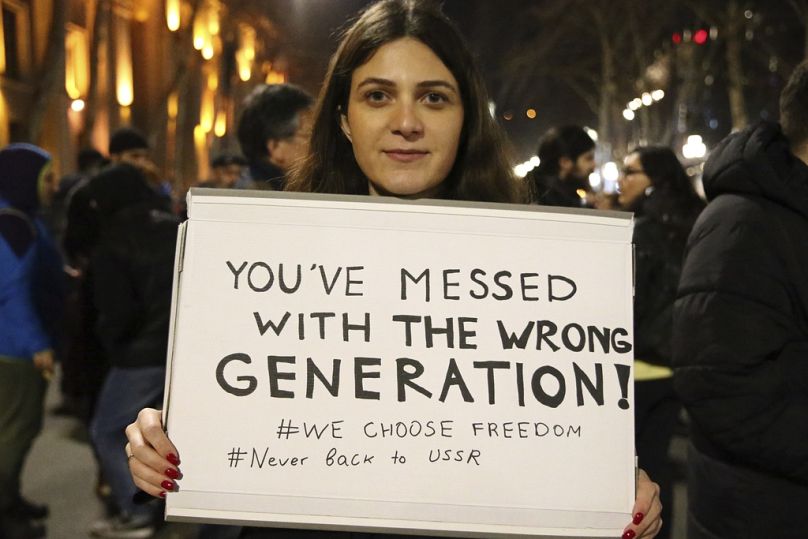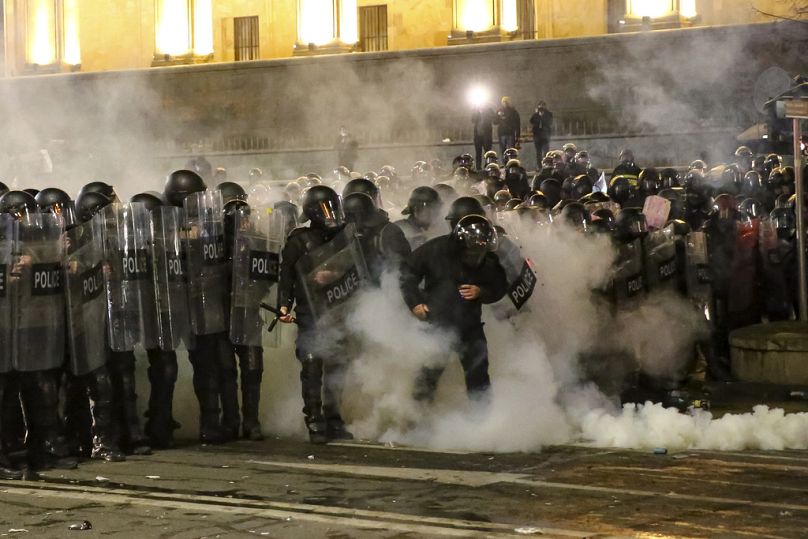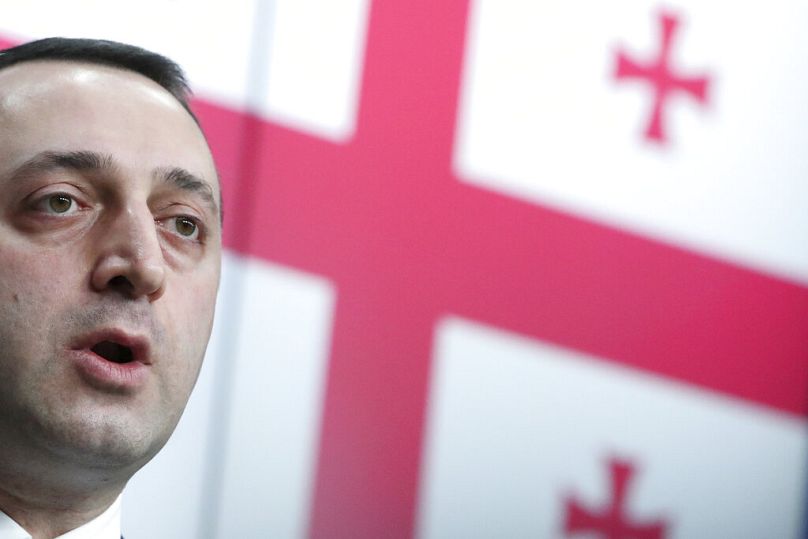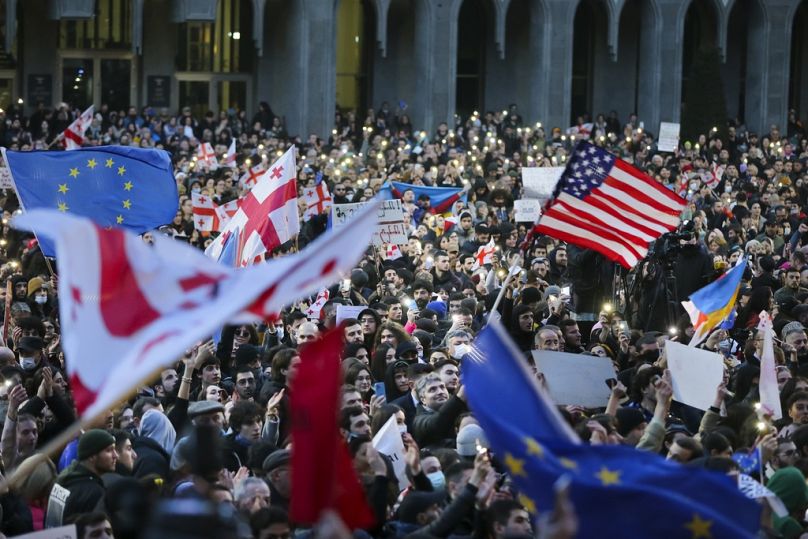The ruling Georgian Dream coalition's approach is to demonise all other political parties and the civil society. Still, we are fighting for EU membership and anyone and anything that does not help us get there, Vano Chkhikvadze told Euronews.
Massive protests broke out in the streets of Georgia’s capital, Tbilisi, on 7 March as the parliament prepared to pass a bill that would require non-governmental organisations, news outlets and other entities that receive 20% of their funding from outside the country to be registered as "foreign agents".
Immediately compared to the Russian and Hungarian laws on foreign agents, the draft law is in direct opposition to a 12-point EU conditionality plan that Georgia would need to fulfil in order to be granted candidacy status.
Thousands took to the streets and continued to protest even after the draft bill was suspended from further parliamentary approval.
Euronews spoke to Vano Chkhikvadze from the Open Society Foundation in Georgia — an NGO that would be directly affected by the law — who also manages their European Integration program.
Euronews View: Could you provide us with a bit of background in terms of how this came about? Especially in a country where EU integration is still very popular, and this evidently goes against it?
Vano Chkhikvadze: Well, I think this is a clear sign that there's a big split between the society and the authorities. On the one hand, authorities in Georgia try to demonstrate that they are pro-European.
They're the ones who submitted the application for EU membership, but at the same time, they initiated this draft law and passed it in the first hearing. This pushed people to go out in the streets for three days.
On Thursday morning, the ruling Georgian Dream coalition representatives said they would suspend the law, and they will likely come back to it after they believe things have calmed down.
Euronews View: There are not that many countries where protests get so big so fast and where they end up being effective in procuring change in the parliament. Why do you think people were so angry?
Vano Chkhikvadze: The support for EU integration is very high in Georgia. At times, it has gone up to 80%. In fact, it's never gone below 65% in the history of the country.
People understood immediately that the law would derail Georgia's membership process.
People see this as a Russian law, or a law that brings Georgia within the Russian sphere of interest and people have been fighting against that.
People do not believe that Georgian Dream will fully withdraw the law and, in fact, according to parliamentary procedure, this actually means that the same 78 members of parliament now have to organise a second hearing, and at that second hearing, they have to vote against the law.
Let's see how that goes.
Euronews View: What is the security situation in the country like, keeping in mind that 20% of Georgia has been under Russian occupation since 2008?
Vano Chkhikvadze: The occupation of the country is ongoing, and the human rights situation there continues to be drastic.
There are regular cases where people living on the other side of the occupation line accidentally cross the border and are arrested.
There are Russian military bases located there, so this is pretty worrisome and makes the security situation pretty volatile.
Euronews View: What are the security guarantees from Western allies?
Vano Chkhikvadze: Georgia is a very close partner of NATO, and we strive to be members of it.
The West has woken up after what's happened in Ukraine. It's not the situation it was back in 2008.
I think they finally understand that it is [Russian president Vladimir] Putin's Russia who wants to take control of the former Soviet States.
I think that these kinds of wake-up calls help us believe that if something happens, our Western partners would not be hesitant to support us.
There are no firm security guarantees, but a general awareness in the West of what is going on here is appreciated by Georgian society.
Euronews View: What is the position of Georgian Dream when it comes to the security issues the country faces?
Vano Chkhikvadze: Georgian Dream's approach is to demonise all other political parties and the civil society.
They try to claim that if it weren't for Georgian Dream, there would be an active war in the country.
And they try to promote this belief through the news outlets and TV channels controlled by them. They don't have much else to sell to society.
The economic situation is pretty worrisome. The number of people leaving the country is quite drastic.
Thousands of people are trying to move to EU member states. Hundreds, if not thousands, are trying to get to the US as illegal migrants crossing the US-Mexico border.
So Georgian Dream does not actually have much to offer. The only thing it can do is position itself as the only security guarantee that can maintain peace in Georgia.
Euronews View: But the major security risk to Georgia comes from Russia? How do they reason with passing Kremlin-inspired laws in order to keep the country safe from a Russian war?
Vano Chkhikvadze: We can't really find the logic there. I think this was an attempt at demonising all their opponents, and the only thing they are thinking about — I would like to underline this — is how to maintain power in the 2024 elections.
They don't really care about other things. It's priority number one.
Euronews View: Would you compare the protests and the reactions to the Maidan or Euromaidan moment in Ukraine? The scale of the protests and the EU theme seem pretty similar.
Vano Chkhikvadze: There might be some similarities. I know what the situation is here in Georgia. Basically, we are fighting for EU membership. We are fighting against anyone and anything that does not help us get there.
Euronews View: What are the political alternatives that exist in Georgia?
Vano Chkhikvadze: Not many, and it was very catchy what the leader of the biggest position party Levan Khabeishvili said on Wednesday.
He said that the people protesting on the streets don't care about politics.
They don't care about political parties. What they care about is their country.
So while there is not much of an alternative here, unfortunately, because the opposition parties are fairly weak, this does not lead to people giving up and accepting what is happening now.
So while opposition parties are not really capable of resisting Georgian Dream, the people definitely think they can do it.


